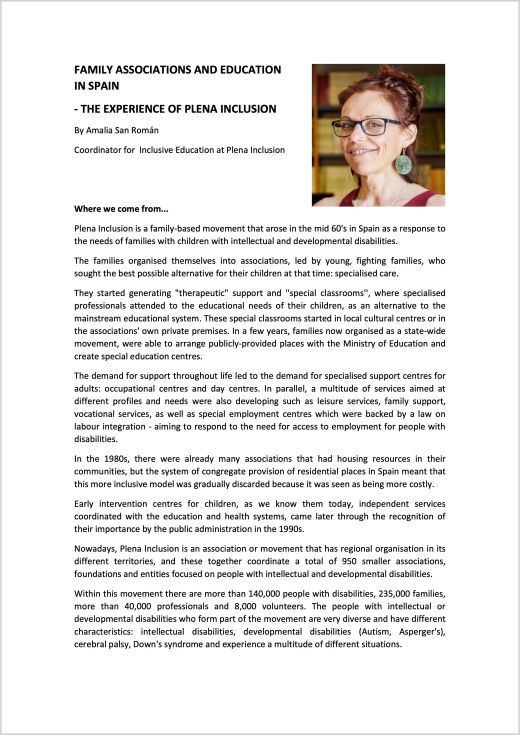David Towell shares how Family Associations in Spain are working to advance inclusive education.
Author: Amalia San Román
Introduction: David Towell
This is the fourth in our case studies (following Perú, New Zealand and Colombia) of how national family associations are working to advance quality and inclusive education. This study is from Plena Inclusión in Spain.
Like IHC in New Zealand but in a much larger country, the national family association - better understood as a confederation of regional and more local entities - in Spain, now called Plena Inclusión (full inclusion) has developed over the last sixty years as both an extensive family movement and a major provider of services. Accordingly, again like IHC, both its own services and those it advocates to improve provided by others, reflect changing philosophies of provision, most simply the shift from separate specialist services for people with intellectual disabilities towards ensuring they have the opportunities and support to be fully included in society.
As Amalia San Román - Plena Inclusión's influential inclusive education coordinator - explains, these tensions within and outside the family movement need to be skilfully addressed in relation to education. The scale of Plena Inclusión's work means that the family association can mobilise extensive contributions at all levels from the schools to the national government and use a range of levers to achieve positive change. Most importantly this national alliance of family associations seeks to involve all relevant stakeholders in building the movement for change, demonstrating what is possible when inclusive education is done well and campaigning to ensure that governments nationally and regionally establish the conditions for delivering success for all children and young people.
Read and download the Spanish case study in full in English and in Español, links below.

The publisher is Amalia San Román.
Advancing Inclusive Education in Spain © Amalia San Román 2021.
All Rights Reserved. No part of this paper may be reproduced in any form without permission from the publisher except for the quotation of brief passages in reviews.
Inclusion, Inclusive Education, Spain, Paper